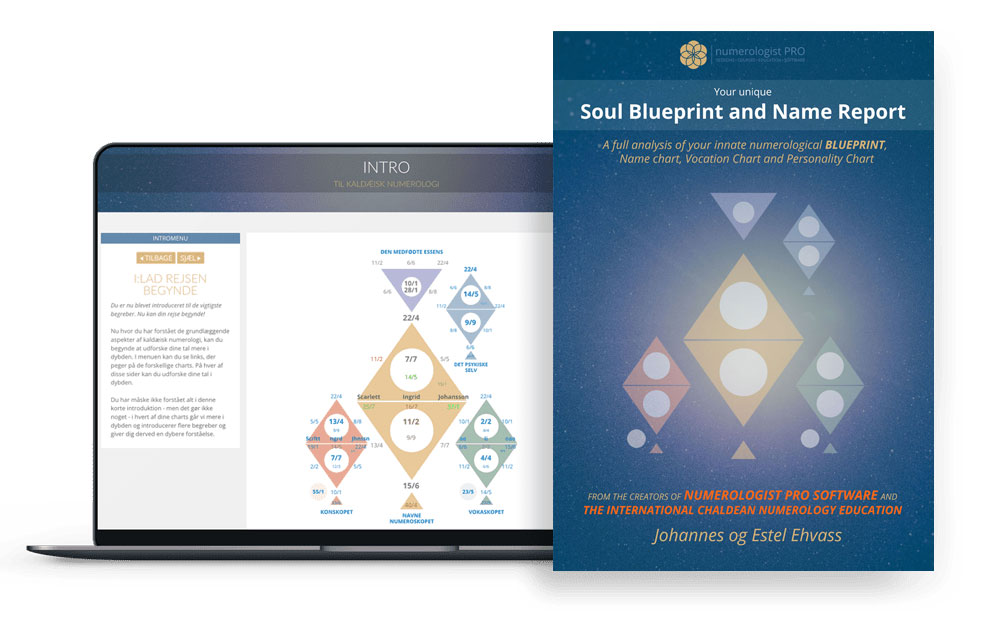Deep Dive into the 8th House: The House of Transformation and Shared Resources

Johannes Ehvass
Welcome, dear reader! In this series, we explore the twelve houses of astrology, each representing a distinct aspect of our lives. These houses form the core of an astrological chart, guiding us through the varied realms of personal identity, relationships, career, and more. As we delve into each house, we'll discover how they shape our perspectives and intersect with planetary energies. Whether you're well-versed in astrology or newly curious, join me on a journey through these celestial domains, where cosmic patterns illuminate the intricacies of human experience.
Introduction to the 8th House

Astrology is a cosmic map that offers insights into the intricacies of our lives, emotions, aspirations, and patterns. Within this celestial guide, the twelve astrological houses serve as specific arenas of life experience. While each house provides a unique understanding, the 8th house stands as a domain that delves into the profound mysteries of existence.
At its core, the 8th house illuminates the realm of transformation, shared resources, inheritance, and the juxtaposition of life and death. This house takes us on a journey into the deeper waters of existence, asking us to confront the truths we often shun and embrace the complexities of merging our energies with others.
When planets transit through this house or when individuals have planets in the 8th house in their natal chart, there’s a beckoning to face the shadow, to understand the nuances of shared financial and emotional bonds, and to fathom the ineffable cycle of life, death, and rebirth.
Macrocosm and Microcosm: The 8th House Correspondence
The ancient Hermetic axiom, “As above, so below”, encapsulates the symbiotic relationship between the universe (macrocosm) and the individual (microcosm). This principle is vividly manifested in the 8th house, binding the expansive cosmos with our individual experiences.
In a physical sense, the 8th house corresponds to the reproductive system and elimination organs. Just as these systems are involved in the creation of life and the removal of waste, the 8th house is concerned with the cyclical processes of beginnings and endings. On a broader scale, this points to themes of birth, death, and the afterlife. Just as the reproductive system is responsible for procreation and ensuring the continuity of life, the 8th house delves into the legacies we inherit and leave behind, both materially and spiritually.
Spiritually, the 8th house stands as a transformative cauldron, acting as a crucible for the soul’s metamorphosis. This is the house that prompts us to transcend the ego, to confront our deepest fears, and to engage intimately with others, not just on a physical level, but on a soul-deep, karmic level. It beckons us to understand the impermanence of life and the eternity of the soul.
Historical Context
The understanding of the 8th house has evolved and deepened over centuries of astrological practice. Ancient astrologers often linked this house with death, inheritance, and dowries. This was a time when mortality rates were high, and inheritance held significant socio-economic implications. The 8th house’s association with shared resources and wealth was a direct reflection of the societal norms and challenges of ancient civilizations.
Historically, in both Western and Hellenistic traditions, the 8th house was deemed an “unfortunate” or “inauspicious” house, primarily due to its connections with mortality and the unknown. It was termed the “Idle Place” by some, suggesting a realm where things remain hidden or unresolved.
Yet, as astrology transitioned through the Renaissance and into modern eras, the understanding of the 8th house expanded. Today, while death and inheritance remain crucial themes of this house, the focus has shifted towards psychological transformation, shared resources, intimate bonds, and the exploration of the esoteric and occult.
Various astrological traditions have added depth and dimension to the understanding of the 8th house. For example, in Vedic astrology, the 8th house is also linked to sudden events and calamities, further emphasizing its transformative nature.
In conclusion, the 8th house stands as a testament to life’s profundities, the mysteries that we often fear yet are intrinsically part of our existence. It reminds us of the cyclical nature of life, the transformative power of deep connections, and the eternal dance of birth, death, and rebirth. As we journey through life, the lessons of the 8th house offer both challenges and profound insights, pushing us to confront, understand, and eventually transcend our deepest fears and desires.
The 8th House’s Connection to Scorpio
When delving into the 8th house’s mysteries, it is impossible not to acknowledge its natural ruler: Scorpio. A sign known for its intensity, passion, and probing nature, Scorpio’s energy is deeply intertwined with the themes of the 8th house.
Scorpio, a fixed water sign ruled by both Mars and Pluto, embodies the transformative essence of this house. Its dual rulership reflects a balance between direct action (Mars) and profound, subterranean shifts (Pluto). This duality offers insight into Scorpio’s—and by extension, the 8th house’s—propensity for delving deep into the undercurrents of life to unearth hidden truths.
Understanding Scorpio is akin to understanding the nuances of transformation, shared resources, and the depth of human emotions. Scorpios are known for their unwavering determination, an ability to see beyond facades, and their magnetic intensity. Similarly, the 8th house is not for the faint of heart; it demands confrontations with uncomfortable realities, profound entanglements, and a desire to merge with another on all levels—emotionally, physically, and spiritually.
This house’s association with Scorpio also brings to the forefront the themes of rebirth and regeneration. Just as the Scorpio archetype undergoes various stages, evolving from the ground-dwelling scorpion to the soaring eagle and eventually the mythological phoenix, the 8th house underscores the evolutionary journey of the soul through cycles of destruction and rebirth.
The Cusp of the 8th House
The cusp of the 8th house, often referred to as the “gateway” or “doorway” into this house, plays a vital role in shaping the specifics of how its themes manifest in an individual’s life. This point, delineated by the zodiac sign that sits at the beginning of the 8th house in one’s natal chart, provides nuance and specificity to the more generalized attributes of this house.
If, for example, Leo is on the cusp of the 8th house, one might approach issues of shared resources with magnanimity, or perhaps with a flair for drama. The individual might find themselves attracted to powerful partnerships or view inheritances and shared wealth as a means to sustain their regal lifestyle.
On the other hand, if the gentle and analytical Virgo presides on the cusp, there’s a tendency to meticulously manage joint resources, and transformational processes might be approached with caution, discernment, and a need for understanding the minute details.
The sign on the 8th house cusp can also influence the manner in which one confronts the mysteries of life and death. An Aries cusp might meet these themes with directness and pioneering spirit, while a Piscean cusp could approach them with sensitivity, intuition, and a touch of mysticism.
It’s important to note that while the sign on the cusp provides an overlay of thematic flavor, the entirety of the house’s manifestation also depends on any planets residing in the 8th house and aspects they form with other celestial bodies.
Themes of the 8th House
The 8th house, in its profound depth, is a realm of juxtapositions. It deals with both the tangible and intangible, the physical and metaphysical.
Firstly, the theme of shared resources dominates. This is not merely limited to financial entanglements, though they are a significant component. Joint bank accounts, inheritances, taxes, loans, and other financial instruments that bind individuals together find their home here. The way we navigate these shared financial waters—whether we merge with ease or face power struggles—reveals our deeper attitudes towards trust, vulnerability, and interdependence.
Beyond the fiscal, the 8th house also governs the resources we share on emotional, spiritual, and physical levels. This house underscores the depth of intimacy, the act of becoming ‘one’ with another, and the vulnerabilities and strengths such intertwinement can reveal. It’s about deep bonds, the ones that transform us, challenge us, and sometimes even break us, only to rebuild us anew.
Then, there’s the transformative aspect. This house is about the life-death-rebirth process. It’s about confronting mortality, understanding the impermanence of the physical, and embracing the eternal nature of the soul. People with strong 8th house placements often find themselves drawn to professions or situations where they come face-to-face with these themes, be it in hospice care, psychotherapy, or even fields that deal with financial legacies.
Lastly, there’s an esoteric side to the 8th house. It governs the occult, the mysteries that lie beyond the veil of the known. This is the house of deep psychic insights, mediumship, and explorations into realms that many fear to tread. It’s a space of magic, mysticism, and profound spiritual regeneration.
In essence, the 8th house is a domain of profound entanglements and transformations. It asks us to delve deep, to confront the shadows within and without, and to emerge from these encounters with a renewed sense of purpose, understanding, and depth.
Interception and Retrograde Planets in the 8th House
The 8th house is already a complex terrain, but when we introduce the concepts of interceptions and retrograde planets, its nuances expand even further.
An intercepted house occurs when an entire zodiac sign is contained within a house, without touching either cusp. This can happen due to the way houses are calculated, particularly in certain latitudes. When a sign (and any planets in that sign) is intercepted in the 8th house, the individual might feel that the energies associated with that sign are “locked away” or not easily accessible. For instance, if someone has Gemini intercepted in the 8th house, they might find it challenging to communicate or articulate issues related to transformation, joint resources, or intimacy.
In terms of the 8th house, an interception might manifest as hidden traumas or repressed feelings about loss, intimacy, or shared resources. There could be unspoken fears or anxieties surrounding themes of death or inheritance. The key with an interception is to find a way to access and express these energies constructively, often requiring external triggers or conscious introspection.
Now, consider the impact of retrograde planets. When a planet is retrograde, it appears to move backward from our Earthly perspective. In a natal chart, this can indicate that the energies of the planet are turned inward or need revisiting in some way.
Having retrograde planets in the 8th house can add an additional layer of introspection and complexity. Suppose Venus, the planet of love and value, is retrograde in this house. In that case, there might be deep-seated issues or past-life karma related to shared resources, love, and intimacy. These individuals might need to reevaluate their approach to intimacy, confront past traumas, or address issues regarding joint financial matters.
Retrograde Mars in the 8th could indicate suppressed anger or unresolved conflicts related to power dynamics in relationships. The individual might grapple with their own assertiveness in shared situations, navigating the balance between being forthright and being overpowering.
The 8th House in Different Astrological Systems
While Western tropical astrology is perhaps the most widely known system in the modern Western world, it’s by no means the only perspective on the astrological houses. Vedic astrology, or Jyotish, offers another lens through which to view the 8th house.
In Western astrology, the 8th house is intrinsically linked to Scorpio and its ruling planets, Mars and Pluto. It emphasizes transformation, joint resources, and the interplay between life and death. However, in Vedic astrology, while the basic themes of the 8th house (like longevity, transformation, and sudden events) remain consistent, the emphasis and interpretation can vary.
For instance, in Vedic astrology, the 8th house is considered a “Dusthana” house, meaning it’s one of the challenging houses that relate to suffering and life’s trials. The 8th house in Vedic thought is deeply associated with longevity and can provide insights into the nature of one’s potential challenges, both physically and mentally.
Another point of difference is the planets considered malefic or beneficial for this house. In Vedic astrology, the presence of benefic planets like Jupiter in the 8th house can be seen as protective, potentially warding off some of the house’s more challenging manifestations.
Aspects to the 8th House
Aspects to the 8th house can significantly influence its manifestation in an individual’s life. Planetary aspects (the angles planets make to one another) can either enhance or challenge the house’s themes.
For instance, a trine from Neptune to the 8th house cusp might bestow the individual with intuitive insights into the mysteries of life and death, an innate psychic ability, or a deep sense of spiritual connection when dealing with transformative experiences. This harmonious aspect can make it easier for the individual to navigate the waters of the 8th house, bringing a touch of Neptunian mysticism and sensitivity.
On the other hand, a square from Saturn might introduce challenges related to shared resources or bring about deep-seated fears surrounding intimacy and vulnerability. The individual might feel restricted or burdened in areas of life related to the 8th house, prompting them to work through these challenges with discipline and perseverance.
Understanding the aspects to the 8th house, along with the signs and planets involved, can offer a more nuanced and holistic view of how its themes play out in the individual’s life. It provides a roadmap, highlighting areas of ease and potential challenge, guiding the individual on their journey through the transformative terrains of the 8th house.
Conclusion
The 8th house, with its intricate weave of life, death, rebirth, shared resources, and profound emotional entanglements, stands as one of the most profound sectors in the astrological wheel. Its themes force individuals to confront the deepest parts of themselves and their relationships with others. Whether it’s navigating the choppy waters of joint finances, delving into the mysteries of intimacy and vulnerability, or grappling with the profound truths of life and death, the 8th house acts as a crucible of transformation.
Understanding this house’s intricate themes and the myriad ways they can manifest is akin to possessing a powerful tool. It aids in navigating some of life’s most challenging terrains, offering insights into our deepest fears, desires, and the transformative processes we all undergo.
Its association with Scorpio brings a layer of intensity and passion, urging individuals to dig deep and face the shadows. The sign on the cusp and any planetary residents provide further nuances, adding layers of complexity and specificity to the house’s general themes.
Aspects from other planets, whether harmonious or challenging, can amplify or mitigate the house’s energies, offering a roadmap to navigate its challenges and harness its strengths. Interceptions and retrogrades, on the other hand, bring their own set of unique challenges and introspective journeys, urging the individual to unlock and revisit certain energies.
By synthesizing all this knowledge, one can gain a comprehensive understanding of the 8th house in their natal chart. Such an understanding is invaluable. It offers a guiding light through the transformative processes we all face, emphasizing the importance of shared resources, deep connections, and the cyclical nature of existence.
In the end, the 8th house teaches us about the delicate balance of holding on and letting go, of merging and separating, and of living and dying. It reminds us of the impermanence of the physical realm and the eternal nature of the soul. It underscores the profound beauty of life’s transformative moments and the strength and resilience of the human spirit.

Johannes & Estel: Renowned authorities in Numerology, Astrology, and the esoteric arts. As the founders of Scandinavia's premier Numerology school, we're delighted to share our insights through this curated series on astrology. Dive in and discover the stars.
The Worlds Most Advanced Numerology Report

Your birthdate reveals your unique life purpose, potentials, talents, weaknesses, and karma in this life.
Your names show what you attract into your life regarding your career, relationships, happiness, money, and success.
GET THE REPORT HERE
Introduction to Astrology
The history of Astrology
Moving beyond deterministic astrology
Foundation of Astrology: Planets, Signs and Houses
Astrology and the Holographic Universe
The Holographic Universe
The Human Psyche as a Mirror to The Solar System
The Human Body as a Mirror to The Star Signs
Astrology Background
Egyptian Astrology
Mayan Astrology
Chinese Astrology
Indian Astrology - Jyotish
Celtic Astrology
Tibetan Astrology
Mesopotamian Astrology
Early Mesopotamian Astrology: The Dawn of Celestial Divination
Enuma Anu Enlil: The Epicenter of Babylonian Celestial Omen Interpretation
Babylonian and Chaldean Astrology
Babylonian and Chaldean Astrology
Chaldean influence and evolution
Chaldean Wisdom: Safeguarding and Transmitting Astrological Knowledge
Hellenistic Astrology
Hellenistic Astrology background
Claudius Ptolemy and Tetrabiblos
Vettius Valens
Dorotheus of Sidon
Persian Astrology
Persian Astrology background
Sassanian Astrology
Late Antiquity and The Transition Period
Late Antiquity and The Transition Period
Hellenistic to Islamic Transition: The Torchbearers of Astrological Wisdom
Islamic Golden Age
Arabian Astrology Background
Arabian Astrology Contributions
Medieval Astrology
Introduction: The Medieval Cosmos
Monastic Preservers: Astrological Knowledge in the Dark Ages
Astrology in Medieval Medicine
Kings, Queens, and Constellations: Astrology in the Medieval Court
The Church and the Stars: A Contentious Relationship
Universities and Scholastic Pursuits: Academic Astrology
Astronomy & Astrology: Tools of the Trade
Medieval Astrological Houses and the Synthesis of Traditions
Transition to the Renaissance: Humanism and the Celestial Arts
Reflections: Medieval Astrology's Echoes in Modern Practice
Astrological Art of the Middle Ages
Famous Medieval Astrologers
Medieval Astrological Texts
Renaissance Astrology
Renaissance Humanism and Astrology
Scientific Advancements and Astrology
The Social Fabric: Astrology in Everyday Renaissance Life
Court Astrologers of the Renaissance
Controversies and Conflicts: Astrology Under Scrutiny
Renaissance Texts and Authors: Continuation of a Tradition
Astrology and Art: Celestial Imagery in the Renaissance
Renaissance Astrological Practices: Evolutions and Innovations
End of the Renaissance: The Gradual Decline of Astrological Influence
Renaissance Astrology's Echo in the Modern World
Enlightenment Astrology
Introduction: The Enlightenment and Astrology
Challenging the Stars: Astrology's Critics during the Enlightenment
Astrology and the New World
Astrology in the 19th Century
The Dawn of Psychological Astrology
Astrology in the 20th Century: A Modern Renaissance
Astrological Associations and Schools
Modern Controversies and Astrology
Astrology and Popular Culture
Astrology and Technology
Current Trends and Future Directions in Astrology
Conclusion: Reflecting on Astrology's Evolution
The Planet Significances
The Sun in Astrology
The Moon in Astrology
Mercury in Astrology
Venus in Astrology
Mars in Astrology
Jupiter in Astrology
Saturn in Astrology
Uranus in Astrology
Neptune in Astrology
Pluto in Astrology
Chiron in Astrology
Black Moon Lilith in Astrology
Pars Fortuna in Astrology
Ceres in Astrology
Houses in Astrology
Introduction to Astrological Houses
The Angular Houses
The Succedent Houses
The Cadent Houses
The 1st House
The 2nd House
The 3rd House
The 4th House
The 5th House
The 6th House
The 7th House
The 8th House
The 9th House
The 10th House
The 11th House
The 12th House
Interaction Between Houses
Derived Houses, House Rulers, and Interceptions
Conclusion: Synthesizing House Knowledge
All Materials © 2023 & 2024 Numerologist PRO
Terms of Service: Information provided by Numerologist PRO and/or from this web site is not intended as advice (medical, psychological, financial or other), nor is it intended to replace your work with a qualified professional (medical or otherwise). You should maintain your relationship with your providers and consider the services of this site as informational only. Any information, stories, examples, or testimonials presented on this website do not constitute a warranty, guarantee, or prediction regarding the outcome of an individual. This web site is a sharing of knowledge and information of numerology/energy work based on the experiences of Numerologist PRO. You are encouraged to make your own decisions based on your own research and inner guidance. By booking and receiving services, you agree to fully release and hold harmless Numerologist PRO and all it's affiliated numerologists from and against any liability or claim that may arise out of or in connection with their service(s).
Numerologist PRO © 2021

CONTACT
numerologist@numerologistpro.com
LIKE US, and get free numerology tools, info about your personal numbers, best business dates of the year - and more!
YOUR FREE NUMEROSCOPE CHART
Enter your name and email below and get access to our free online numerology chart tool.